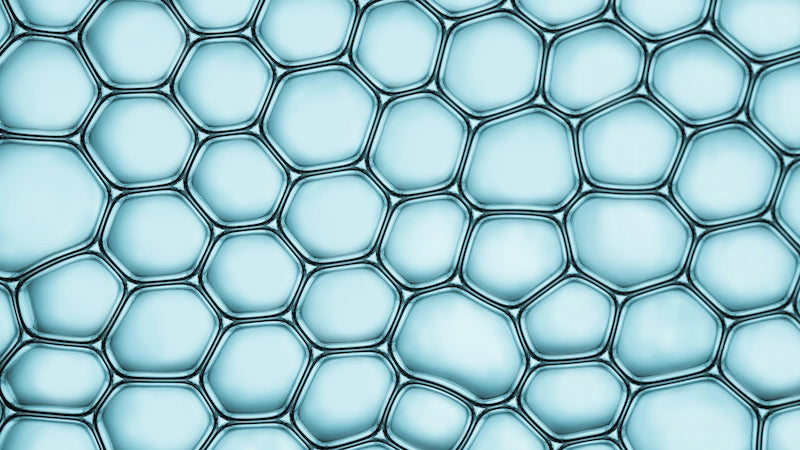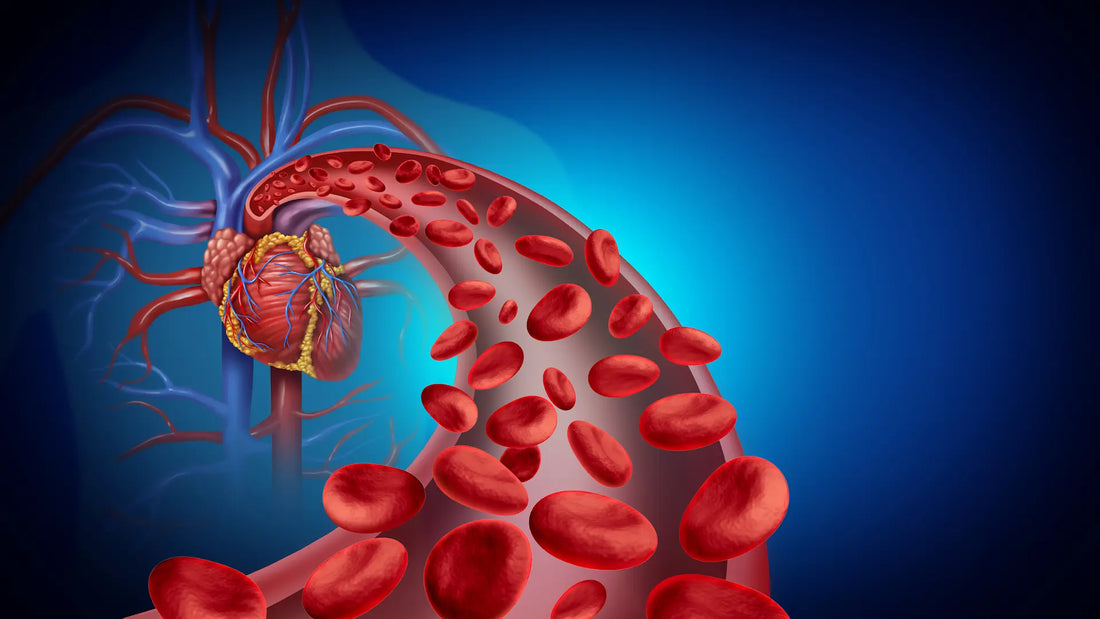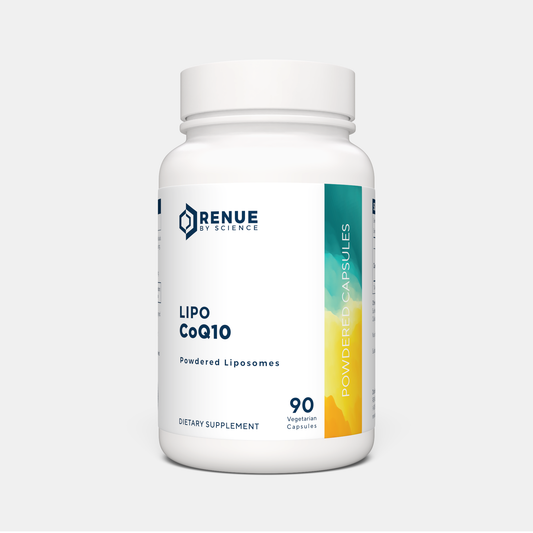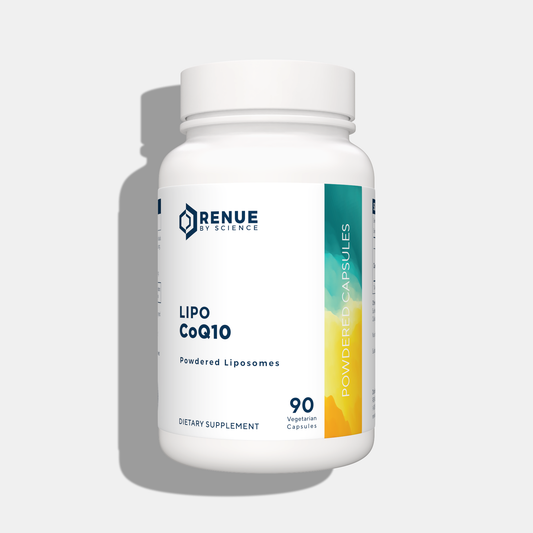CoQ10: The Cellular Protector
-
Direct antioxidant action. Ubiquinol scavenges free radicals before they can cause damage, protecting mitochondria, proteins, and DNA from oxidative damage. (2)
-
Antioxidant recycling. CoQ10 regenerates vitamin E and vitamin C after they've neutralized radicals, restoring their protective capacity. (2)
-
Where it's stored. The highest CoQ10 concentrations are found in energy-intensive tissues like the heart, liver, kidneys, and pancreas, mirroring the energetic needs of reproductive tissues during gamete maturation and early development. (3)
CoQ10's protective effects extend across multiple health domains, with comprehensive research demonstrating its benefits for aging, heart health, and cellular function beyond reproductive support.

How CoQ10 Shapes Female Fertility and Aging
Female eggs (oocytes) are packed with mitochondria—more than almost any other cell type. They need enormous amounts of energy right before ovulation, at fertilization, and in the first days as an embryo grows and implants. It's an energy-heavy, coordinated process and the mitochondria are the engines that set the pace. (4)
Egg Health and Mitochondrial Decline
As women age, their cellular "powerhouses" don't work as well. This decline in mitochondrial function is a key part of reproductive aging. It can mean fewer eggs left, lower egg quality, failed fertilization, poor embryo development, or difficulty with implantation. (4)
Part of the problem is that the body also makes less of its own CoQ10 with age, reducing the support mitochondria need to work efficiently. (5)
Less CoQ10 → less efficient energy production → lower fuel for the egg and more stress on the cell → reduced egg quality.
Early research shows that supplementing aged animal models with CoQ10 restores mitochondrial function and ATP output and improves markers of egg quality. (5) This shifts the outlook on reproductive aging to something that is metabolic and modifiable, not just a matter of age. Instead of viewing oocyte decline as irreversible, CoQ10 points to a possible window where boosting mitochondrial health can improve outcomes.
Reducing Stress, Supporting Healthy Eggs
Too much oxidative stress (an excess of reactive oxygen species (ROS), the body's unstable oxygen-containing molecules) can damage eggs and the surrounding support cells. This can cause the cells to self-destruct (apoptosis) and disrupt the structures responsible for proper keeping chromosomes lined up correctly. (6) The result is a higher risk of aneuploidy (abnormal chromosome number), one of the main causes of failed implantation, early miscarriage, or genetic conditions. (7)
By boosting ATP energy production and reducing oxidative stress, CoQ10 helps eggs maintain the two essentials for healthy development: plenty of fuel and stable, balanced chromosomes. CoQ10's anti-inflammatory properties also contribute to this protective effect, similar to how CoQ10 reduces inflammatory markers to provide migraine relief in other therapeutic contexts. (1)
What the Research Shows
In multiple clinical studies, (8), (9) women with fewer remaining eggs (diminished ovarian reserve) who took CoQ10 before fertility treatments like IVF or ICSI saw positive results, including:
-
Higher clinical pregnancy rates
-
More retrieved oocytes
-
More top-quality embryos
-
Improved fertilization rates in specific trials
Note: These benefits seem most pronounced in younger women under 35 with lowered ovarian reserve. (9) In this group, eggs may still be healthy enough to respond when their energy supply is supported. In PCOS, CoQ10 has also improved insulin sensitivity (lower fasting glucose/insulin, improved HOMA-IR), another sign that its role in energy metabolism can support both ovulation and egg quality. (10)
Male Reproductive Health: Fueling Motility, Guarding DNA
Male infertility contributes to roughly half of couples' struggles to conceive. Two key cellular issues that contribute to this are poor mitochondrial function and oxidative stress.
-
Mitochondrial function: Sperm pack their mitochondria into the midsection, where they generate the energy needed to power the flagellum tail and swim forward. When these mitochondria don't work efficiently, sperm lose their ability to move properly, a problem known as poor motility. This is a leading cause of male infertility. (11)

How CoQ10 Impacts Male Fertility: Mechanisms and Outcomes
-
Motility: Men with lower CoQ10 levels in their semen often have slower-moving sperm. Supplementing with CoQ10 has been shown to boost energy production in the sperm's mitochondria, helping them swim faster and more effectively. (12)
-
Antioxidant capacity: CoQ10 increases antioxidant capacity, boosting the semen's overall ability to fight harmful free radicals, helping shield both the structures sperm need to swim and the DNA they carry. (12)
-
Semen parameters: Studies often show that CoQ10 can improve sperm numbers (concentration and total count) as well as shape (morphology), all key factors for fertility. (12)
-
DNA integrity: CoQ10 helps reduce DNA damage in sperm caused by oxidative stress. Since broken or fragmented DNA is strongly linked to poor embryo development and pregnancy loss, this protection may improve the chances of a healthy pregnancy, both naturally and with fertility treatments. (13)
-
Hormonal balance: Some studies show that CoQ10 may help support testicular function by raising testosterone and inhibin B, while lowering hormones like LH and FSH. Together, these changes suggest healthier sperm production (spermatogenesis). (14)
These benefits make CoQ10 a powerful bioenergetic and antioxidant support for sperm quality, two key factors that directly impact natural and assisted fertility outcomes.
Practical Guidance: Dosing, Duration, Safety
Dosage Insights
-
Female infertility & IVF support: Studies typically use 180–600 mg of CoQ10 per day, split into smaller doses. Higher amounts around 600 mg/day are often chosen when women are preparing for IVF and need extra mitochondrial support. (15)
-
PCOS: Research shows benefits at about 180 mg of CoQ10 per day, often taken as 60 mg three times daily. (1)
-
Male infertility: Most studies use between 200 and 400 mg of CoQ10 per day. Results suggest that the higher dose 400 mg/day tends to improve sperm quality more than 200 mg/day. (16), (17)
In women, some early studies have tried doses as high as 1200 mg per day, but there's still no clear consensus on the "best" amount since direct comparisons are limited.
Duration Matters
CoQ10 is not an "on-demand" supplement. Its benefits come from gradually improving the cellular environment, which takes time and consistency. Research often examines CoQ10 over a 2–3 month period, which mirrors the body's natural biology: eggs take about three months to fully mature before ovulation, and sperm require roughly 70–90 days to develop. (18), (19)
Because both processes unfold over weeks to months, any improvements in quality are most likely to appear on that longer timeline, not immediately. Recognizing this helps set realistic expectations for how CoQ10 may support reproductive health.
Safety and Interactions
CoQ10 is a substance your body naturally makes, and it's generally very well tolerated as a supplement. (8) Side effects are rare and usually mild, like occasional stomach upset. Because CoQ10 can interact with certain medications, it's important for people to consult their healthcare provider. (20)

What This Means
-
For women: CoQ10 helps support mitochondrial energy production and antioxidant protection in eggs. The strongest signals appear in women with diminished ovarian reserve (DOR) and in metabolic conditions such as PCOS. Younger women with DOR may be especially responsive, pointing to a possible "window of opportunity" where egg quality can still benefit from mitochondrial support. (1)
-
For men: Studies show that CoQ10 can improve sperm movement (motility), overall semen quality, antioxidant defenses, and DNA integrity. Together, these changes may increase the chances of conception naturally and improve readiness for assisted reproductive technologies (ART). (21)
Bottom line: CoQ10 isn't a cure-all for infertility, but it is a biologically plausible, and increasingly well-supported option that improves the quality of both eggs and sperm. By boosting energy production and reducing oxidative stress, CoQ10 may increase the chances of success over the course of natural conception or assisted fertility treatments.
RBS Note: This article summarizes current evidence and typical clinical practices; it is not a substitute for individualized medical advice. Patients should consult their healthcare provider before starting any new supplement, especially when undergoing fertility treatment or taking prescription medications.








